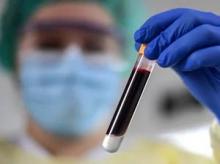Announcements
With the prevalence of the highly transmissible delta variant and the corresponding new wave of COVID-19 cases, there is growing interest in the potential use of booster doses for vaccinated populations.
Fred Hutch biostatisticians and UW faculty members Holly Janes and Peter Gilbert spoke with NPR about new evidence that points to antibodies as a reliable indicator of vaccine protection. David Benkeser (PhD, '15) is also quoted.
Commentary and concrete recommendations on the use and reporting of race, ethnicity, and ancestry across the arc of genetic research, including terminology, data harmonization, analysis, and reporting.
Sharon Browning is quoted about new research published in Current Biology that shows the Ayta Magbukun have retained around 5% of their Denisovan ancestry.
New study co-authored by Biostatistics faculty member Amy Willis is featured, explaining how an international team of scientists used a statistical model to reconstruct the lifetime travel patterns of a woolly mammoth.
In the race to develop new and better vaccines and boosters to block COVID-19, scientists are eagerly seeking laboratory tests that can measure immune responses to quickly show how well these shots are working, instead of waiting months for results of clinical trials involving tens of thousands of people.
Now, a group of top scientists, including Dr. Peter Gilbert, a biostatistician at Seattle’s Fred Hutchinson Cancer Research Center, are reporting that they have defined such measurements — or correlates of protection — for the widely used Moderna mRNA vaccine.
Eagerly anticipated new research pinpoints antibodies scientists can test for to see if a COVID-19 vaccine is effective. These "correlates of protection" could speed the development of new vaccines or boosters without requiring the enormous clinical trials used to create the first COVID-19 vaccines. This is "the Holy Grail" in terms of vaccines, and one that hasn't yet been set for the virus that causes COVID-19, said Peter Gilbert, co-author of the study posted August 10 to medRxiv and a UW research professor of biostatistics.

